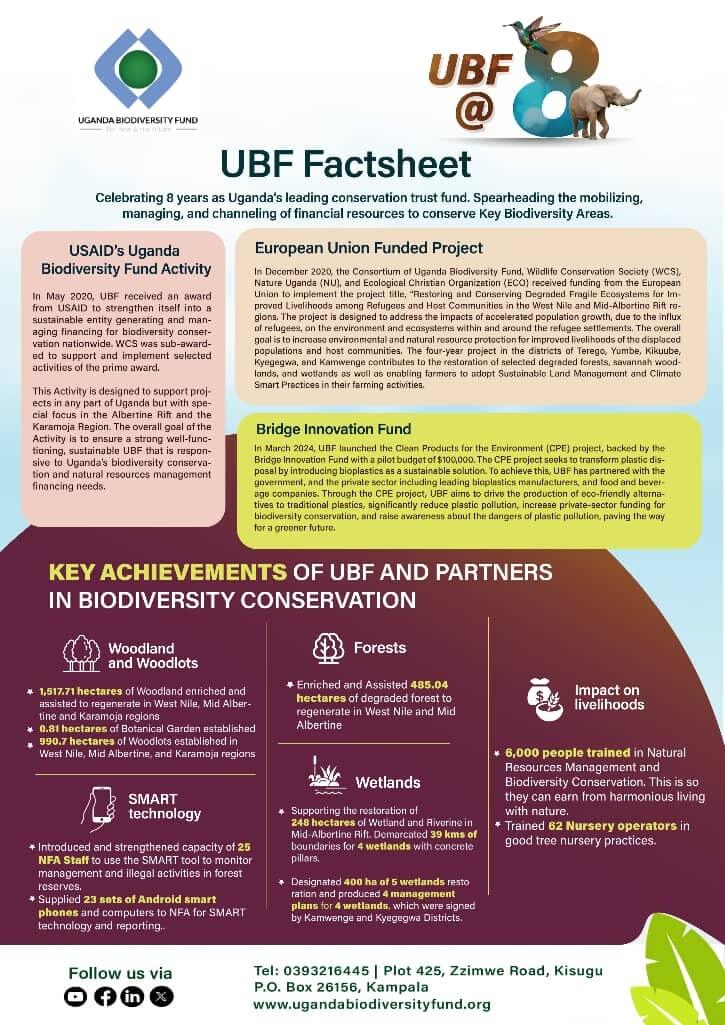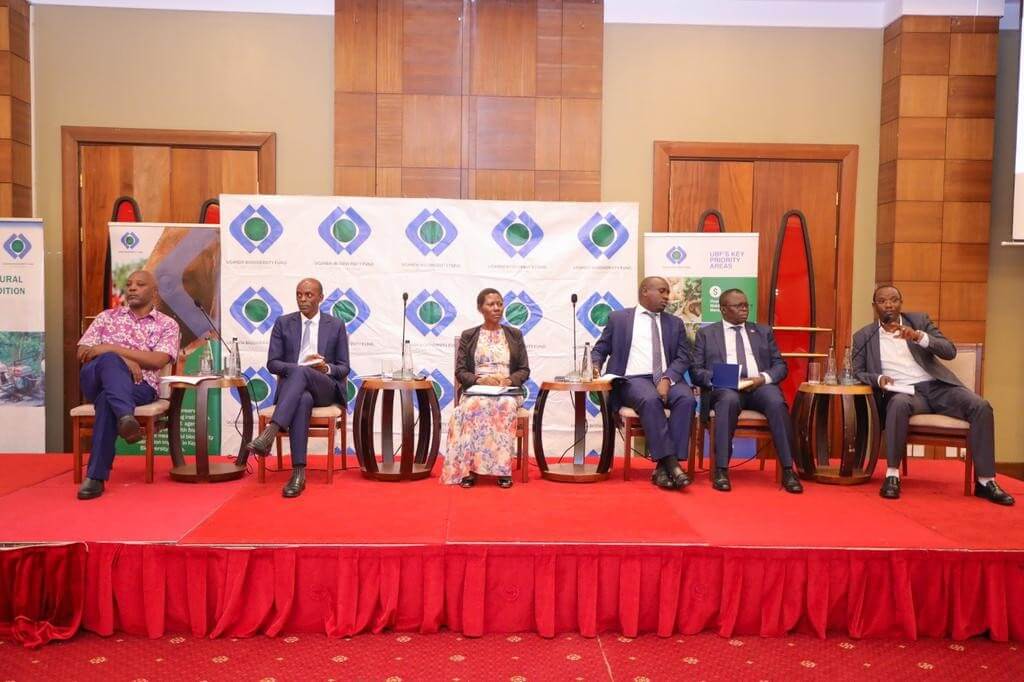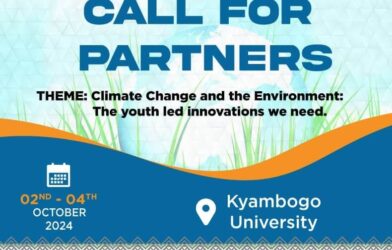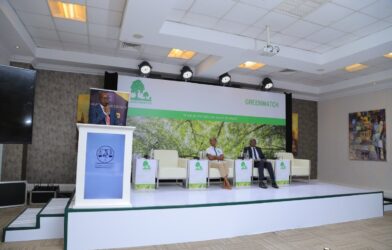The Uganda Biodiversity Fund (UBF), Uganda’s leading conservation trust fund, is celebrating 8 years of driving impactful biodiversity conservation across the country. Since its inception in 2016, UBF has played a pivotal role in channeling financial resources to government agencies, NGOs, and local groups to support their efforts in protecting and restoring Uganda’s natural habitats.
The anniversary celebration was marked by a National Conservation Dialogue, where stakeholders gathered to discuss the implementation of policies for sustainable natural resources management in Uganda. The event highlighted the critical role of multi-stakeholder collaboration in driving positive change for the country’s biodiversity.
“Over the past 8 years, UBF has been at the forefront of conservation in Uganda, working closely with our partners to achieve remarkable results,” said Ivan Amanigaruhanga, Executive Director of UBF. We are proud to have restored 5,989 hectares of ecosystems and empowered over 6,000 people with sustainable livelihoods and eco-friendly practices, thanks to the support of partners like USAID Uganda and the European Union.
In his keynote speech, Dr. Akankwasa Barirega, Executive Director of the National Environment Management Authority (NEMA), praised Uganda’s conservation successes and highlighted UBF’s exceptional work in restoring landscapes, protecting mountain gorillas, and growing elephant populations. He also underscored the urgent need to address the global climate change crisis, calling for a collective effort to reduce emissions and safeguard the planet.
“UBF’s commitment to safeguarding Uganda’s natural habitats, addressing plastic pollution, and promoting sustainable coexistence between wildlife and humans is unwavering,” said David Duli, UBF Board Chair. As we look to the future, we will continue to explore innovative conservation financing approaches to ensure the long-term protection of Uganda’s invaluable natural resources.
Achilles B. Byaruhanga, Executive Director of Nature Uganda, emphasized the importance of addressing poverty as a key driver of environmental degradation. “Offering alternative livelihood options is essential for effective conservation,” he said, “as poverty pushes people to seek more land for farming, worsening the problem.”
As UBF continues its mission to safeguard Uganda’s natural heritage, the organization remains committed to fostering multi-stakeholder partnerships and exploring innovative approaches to conservation financing.















Comments are closed